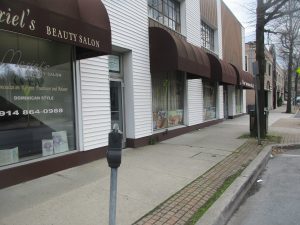Local Businesses Feel Pain After Being Shut Out of SBA Loans

In late March, the Paycheck Protection Program (PPP) made available $349 billion in small business loans available to millions of operators who hoped it would provide a lifeline for themselves and their employees in desperate times.
“If you’re forced to close and you can’t open your doors and you don’t have any revenue flow, that (program) is everything if you have any number of employees, full-time employees,” said Neal Schwartz, president of the Armonk Chamber of Commerce and owner of College Planning of Westchester.
But for many who tried navigating the dizzying and complex application process and subsequent rush to submit the forms to their banks, the effort and desperation went for naught during the first round of loans. Untold numbers of business owners were shut out when the program, part of the CARES Act that had been passed by Congress, exhausted its funds in about two weeks.
Plenty of business owners believed that it wasn’t anything that they did wrong in the dash for the money, but rather some banks may have dropped the ball or, worse yet, gave preferential treatment to their larger customers. The latter sentiment has gained traction, especially as reports of large corporate operations such as Ruth’s Chris Steakhouse and Shake Shack swooped in and received millions of dollars that many believed should have been intended for mom-and-pop operations.
Chappaqua-Millwood Chamber of Commerce President Dawn Dankner-Rosen, who also owns and operates a small public relations firm, said she believes that many local merchants lacked the expertise and needed more help.
“I’m very frustrated. Everybody is. It’s just not right. It’s unfathomable,” Dankner-Rosen said.
The ambiguities of the program, hastily rolled out to quickly get money into the hands of business owners whose livelihoods disappeared overnight, left many financial institutions that would ultimately decide whether to approve applications and process the paperwork, following different sets of rules, said Carl Weiner, a Briarcliff Manor accountant and restaurant owner, who helped many of his clients.
Some banks believed, for example, that an applicant needed to be a customer, particularly the larger banks, that handle more volume, he said. Others used different cutoff dates for newer customers.
Then larger banks may have approved the loans but if they didn’t upload the information into the Small Business Administration’s (SBA) E-TRAN system, then it wasn’t in the que, potentially costing applicants crucial placing, Weiner said.
Weiner said all 15 of his commercial customers that applied for the PPP loans at Tompkins Mahopac Bank were approved. A few more of his clients based in Pennsylvania who do their banking at a small financial institution were also successful, he said.
“The smaller banks did a much better job because it was mostly paper applications, not through some online portal,” Weiner said.
According to the SBA, as of Apr. 20, 81,075 small businesses in New York received $20.3 billion in loans that provide eight weeks of expenses. Despite those numbers, hundreds of thousands came away empty-handed.
Loretta Brooks, co-executive director of the Mount Kisco Chamber of Commerce, agreed that many merchants expressed similar frustration. She has heard of only one of her chamber’s members to receive money.
“Business owners, especially those categorized in non-essential categories, are truly suffering,” Brooks said. “As we approach another month with no opportunity for businesses to generate revenues due to the forced shutdown, business still are facing the stress of mounting bills that could overwhelm their future existence. The promise of help from the program was needed and welcome, but there is an obvious problem with its execution that needs to be recognized and addressed.”
Problems continued during the first day of the second round of PPP loans approved by Congress and signed by President Donald Trump last week. With the glut of applications on Monday, the SBA website crashed.
While there have been numerous horror stories and many others who have not heard from their banks, the White Plains-based Arch Street Communications, a strategic communications and public engagement firm, was a fortunate recipient during the first round of loans.
Its CEO and founder, Nora Madonick, credited not only her expertise gained as a Goldman Sachs 10,000 Small Business Program graduate, but a representative at Key Bank who notified her of the loans before applications were accepted and urged her to prepare.
“They didn’t do anything for us but they guided us through the process,” Madonick said. “We had to do the paperwork and to through the numbers, and it was difficult.”

Martin has more than 30 years experience covering local news in Westchester and Putnam counties, including a frequent focus on zoning and planning issues. He has been editor-in-chief of The Examiner since its inception in 2007. Read more from Martin’s editor-author bio here. Read Martin’s archived work here: https://www.theexaminernews.com/author/martin-wilbur2007/
